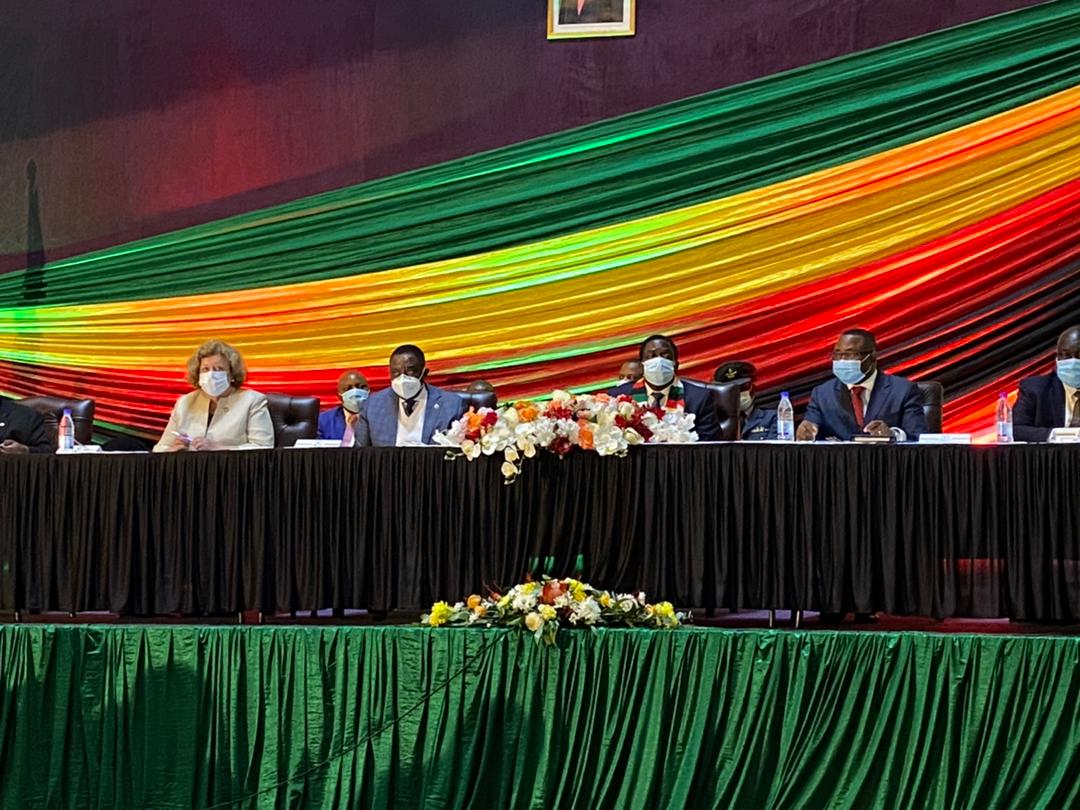|
Getting your Trinity Audio player ready...
|
During the launch of the National Disability Policy and the National Labour Migration Policy in Harare yesterday, President Emmerson Mnangagwa said the documents are a vehicle for inclusive growth and development that his administration embarked on in order to attain the Vison 2030 of making Zimbabwe an upper-middle-income economy.
The launch of these two policies is the culmination of efforts by the Government of Zimbabwe and partners to advance inclusion, reduce inequality, and take steps to leave no one behind as they work together to achieve sustainable development goals (SDGs.)
“In line with provisions of the Disabled Act and the Labour Act, the Government also approved the Policy on the Equalisation of Employment Opportunities for Persons with disabilities in employment and deployment Procedures…
“It is incumbent on all of us to shift from perceiving persons with disabilities as “objects” of charity, medical treatment and social protection and instead view persons with disabilities as being capable of productively participating in the building of our great country, like all citizens. The reality is that no one plans to be born with disability or acquire a disability, hence everyone has an equal chance of becoming a person with disability at any time. Guided by the values of Ubuntu/Hunhu and the legislative obligations, both state and non-state actors have the collective obligation to do all which is possible for the fulfilment of the aspirations of this sector,” President Mnangagwa said.
In her remarks on the same occasion, Ms Mario Ribeiro, the Zimbabwe United Nations Resident Coordinator said the UN recognizes the inclusive nature of the consultations that shaped the development of the two policies
“Today’s event to launch the National Disability Policy is an important milestone towards the implementation of the UN Convention. It also positions Zimbabwe as a global frontrunner on disability inclusion and the 2030 agenda for Sustainable Development.
“Often the process of developing a policy can be as important as the final product itself. In this case, the policy making process included extensive engagement between Organizations of Persons with Disabilities and legal drafters. The engagement of persons with disabilities was done, in part, with support from the joint UN-EU Spotlight Initiative to end violence against women and girls,” Ms Ribeiro said.
Through the Spotlight Initiative, the UN provided support to the Ministry of Public Service, Labour and Social Welfare to conduct consultations on both the Persons with Disability Bill and the National Disability Policy.
The UN also supported the training of 73 persons with disabilities from the two umbrella bodies, the Federation of Organizations of Disabled Persons in Zimbabwe and the National Association of Societies for the Care of the Handicapped.
The UN believes that the Disability Policy will safeguard the rights of persons with disabilities, including sexual and reproductive health rights of children and women with disabilities and their protection against violence and harmful practices.
The Labour Migration Policy is expected to improve Zimbabwe’s governance of labour migration and implement the Global Compact for Safe, Orderly and Regular Migration.
“The policy is forward-looking and rights-based and aims to foster the empowerment of migrant workers while ensuring that migration contributes to Zimbabwe’s socio-economic development. Governed migration has become a policy priority for the migration governance and development strategies of many governments worldwide.
“Enhancing the contributions of migrants is an indispensable policy imperative and a development enabler for origin and destination government countries alike. Labour migration must be considered as a key contributor to the 2030 Agenda and the attainment of the SDGs in Zimbabwe as elsewhere,” Ms Ribeiro added.






